"Amateur" commune cadres in education management
According to the survey data in early August 2025 of the Department of Education and Training, in 124 communes and wards, there are 126 officials and civil servants in charge of the education sector. Of these, 83 civil servants have professional qualifications in pedagogy and related to pedagogy and education; the remaining 43 civil servants have professional qualifications in other fields.
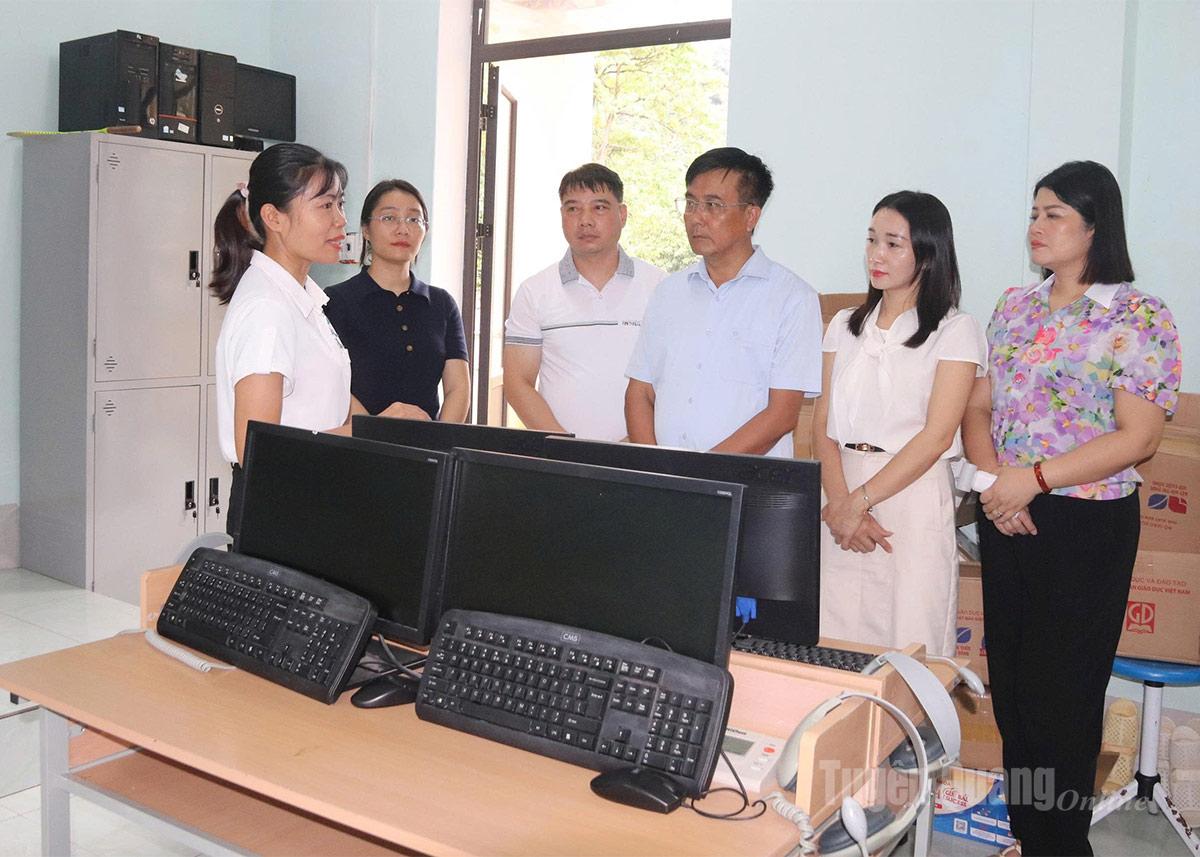 |
| Leaders of the People's Committee and education officers of Thanh Thuy commune inspected teaching and learning at schools. |
When applying the 2-level local government, Ms. Ly Thi Huong was assigned to be in charge of education in Nhu Khe commune. With her professional qualifications in health management, Ms. Huong could not help but feel bewildered at first when faced with the new task. Ms. Huong said: Nhu Khe commune currently has 6 public schools with a total of 1,539 students, of which 42% are ethnic minorities. This requires education staff to quickly grasp the area to do a good job of management. Meanwhile, the education sector is a broad field, requiring macro management knowledge and understanding of the system.
Even those with pedagogical expertise face great difficulties when having to take on new, complex tasks that require in-depth knowledge of finance, accounting and management at all three levels of education. Ms. Luong Thi Loan, Deputy Head of the Department of Culture and Society in charge of education in Yen Lap commune, shared: “Previously, I only specialized in primary school curriculum and teaching methods.
Now, the job requires mastering documents and regulations on revenue and expenditure budgets, and financial settlement for kindergartens, primary schools, and secondary schools. Each level of education has its own characteristics, from the nutritional regime for preschool children, textbooks for primary school students, to the new general education program. Not to mention, we also have to be in charge of issues related to school health, school security, and facilities management. Everything is new and cannot be learned overnight."
Challenges from practice
Currently, each commune-level Department of Culture and Society is only allocated 1 to 2 positions for civil servant positions in charge of education and training. In some places, the staff in charge of education also holds many different positions. The massive and complicated workload, from data collection, file processing, to consulting, professional guidance... creates a clear overload.
Ms. Nguyen Thi Thanh Huan, a civil servant in charge of education in Viet Lam commune, said: “I have to research and learn at the same time because there are many new regulations, so the pressure is very high. We not only do administrative work but also have to take on the role of consultant, advisor, and even guide professional skills for schools.”
 |
| Teachers and students of Hung Thanh Primary School, An Tuong Ward welcome the new school year. |
The limited professional capacity of civil servants in charge of education not only affects administrative work but also directly impacts professional quality. Support from the commune level for schools and teachers becomes ineffective.
According to Mr. Le Hong Duc, Vice Principal of Nhu Han Primary School, Nhu Khe Commune: “In the past, when we had professional problems or needed guidance on completing documents and procedures, we could directly contact the primary school specialist at the district education department. Now, a commune-level official has to manage from kindergarten to high school, they do not have enough time and expertise to support us in a timely manner. Many times we have to learn and manage on our own.”
When commune-level managers do not have educational expertise, it is difficult to advise on program implementation, plans, innovation in teaching methods, and assessment and evaluation. Some localities with few schools at each level will not have equal sharing and professional support, leading to fragmented activities, difficulty in organizing activities (contests, seminars) in school clusters, and inter-school professional activities, affecting the quality of professional development for teachers.
Ms. Vi Thi Duong, Head of the Department of Culture and Society of Kien Thiet commune, shared that Kien Thiet has 1 primary school and 1 kindergarten. Organizing competitions for excellent homeroom teachers, excellent teachers at the commune level, etc. will be difficult, leading to the competition not having high professional quality.
Removing difficulties
After listening to many opinions, the Ministry of Education and Training organized a national training conference in the form of direct and online training for commune-level officials. At the same time, it organized discussions to find ways to overcome difficulties. In the conferences, leaders of the Ministry of Education and Training affirmed that decentralizing education management to the commune level is an inevitable step. To be successful, it requires the cooperation of all levels and sectors, and especially the effort to improve professional and administrative capacity right from the grassroots level - the place closest to the people.
To gradually overcome the above difficulties, Tuyen Quang proactively implemented many solutions. Before the new school year, the Department of Education and Training established a Guidance Working Group consisting of leaders and specialists from the departments of the department to directly guide schools. At the same time, it distributed sets of documents "Guidelines for implementing state management of education according to two-level local government". However, in the long term, it is very necessary to supplement the number of commune-level civil servants suitable for the job positions in charge of the education sector.
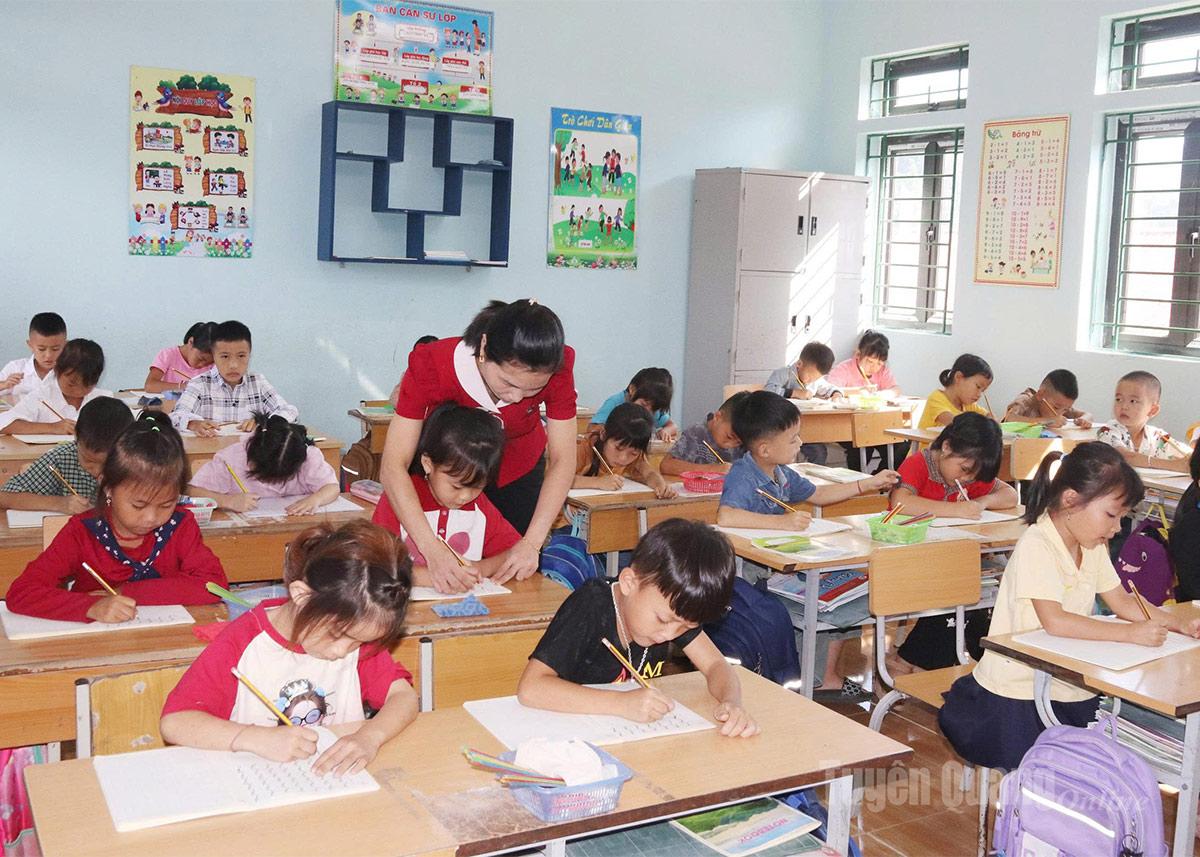 |
| Class time of first grade students at Quyet Tien Primary School (Quan Ba commune). |
Comrade Vu Dinh Hung, Director of the Department of Education and Training, affirmed: “We identify capacity building for grassroots officials as a key factor. In the coming time, we will deploy training courses and in-depth professional development for civil servants in communes on educational management. At the same time, we will second school managers to support communes and wards that lack educational managers; establish a close coordination mechanism between the Department of Education and Training and the People's Committees at the commune level to promptly support the implementation of tasks.”
Recently, the Ministry of Education and Training has issued a document on resolving some difficulties and problems of localities in the field of education and training when implementing two-level local government. This includes solutions to receive and second educational managers and teachers at all levels with appropriate expertise and experience to be assigned to positions in charge of education and training at the commune level.
Mr. Nong Tien Sy, a teacher at Thuong Son Ethnic Boarding Secondary School, Thuong Son Commune, has just been assigned to perform the duties of a civil servant in charge of education in Thuong Son Commune. Mr. Sy shared: "I have been performing the duties of a specialist in charge of education in the commune since August 10. With my professional qualifications, I will try my best to complete the assigned tasks."
In addition, commune-level civil servants proactively improve their capacity and learn from each other to complete their tasks. Ms. Ly Thi Huong, an officer in charge of education in Nhu Khe commune, said: "In addition to self-study and research, we have established zalo groups to share knowledge and provide professional support to complete our tasks. I also hope to have more in-depth training courses and hand-holding to help us complete our tasks in the best way."
Recently, many seminars and conferences organized by the Ministry of Education and Training have proposed solutions to overcome difficulties in the education sector. In particular, many delegates suggested that when the system operates stably, localities can consider new models, for example, "inter-commune school clusters", establishing a group in charge of 3-5 neighboring communes.
This group will be under the Department of expertise, with 5-6 people, who are education experts and specialized at each level, ensuring a team of highly qualified staff, reducing the burden on the commune-level government. This is one of the methods being researched and consulted by many localities.
The initial difficulties in educational management at the commune level are inevitable in a transition process. However, with the decisive participation of the Ministry of Education and Training and the initiative of localities, the problems will gradually be resolved. All are aimed at a common goal: to bring the best learning environment for students, opening up a bright future for the education sector in the new era.
Giang Lam
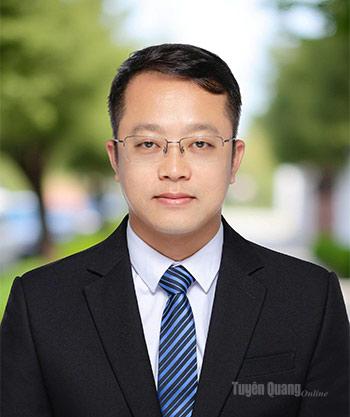 |
Dr. Luc Quang Tan
Director of Thai Nguyen University Branch in Ha Giang
Synchronize quality improvement solutions
To improve the effectiveness of education management when implementing a two-level local government, many synchronous solutions are required. First of all, it is necessary to strengthen training and professional development for officials in charge of education at the commune and ward levels. Training content must include knowledge of state management, education management, law, school regulations, human resource management, finance and digital technology application skills. The assessment of staff capacity needs to be carried out periodically, linked to competition and appointment criteria. At the same time, it is necessary to prioritize reasonable budget allocation for education, especially in difficult areas.
Standardizing the team, improving management capacity and applying professional standards to the recruitment of civil servants in charge of education are also very important. Promoting the application of information technology, implementing smart school models and managing according to ISO standards are inevitable trends.
Finally, it is necessary to promote socialization, promote the role of the community, the Board of Directors, parents' associations and social organizations in monitoring, advising and mobilizing resources for education.
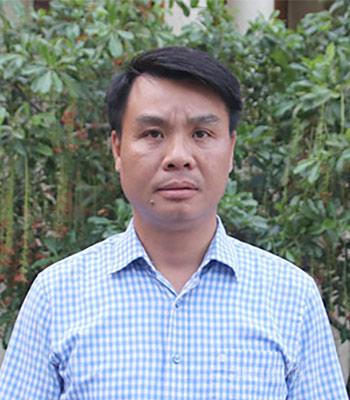 |
Comrade Nguyen Duy Huan
Vice Chairman of People's Committee of Quan Ba Commune
Removing difficulties to put education into order
In the 2025-2026 school year, the entire commune will have 9 schools under the management of the Commune People's Committee with a total of nearly 5,000 students. The workload is huge, the management requirements are increasing, but the commune-level staff is limited, and staff must hold multiple positions, making it difficult to properly assign education majors.
In Quan Ba, the Head of the Department of Culture and Society is trained in the right field of education, but the specialist directly in charge of the field has expertise in social work. This difference leads to many difficulties in implementing tasks. To overcome this, the People's Committee of the commune directs the department's leaders to regularly and directly guide and support capacity building, helping specialists quickly catch up, ensuring progress and quality of work. At the same time, promptly grasp the difficulties to gradually resolve them, determined to put local education work into order, meeting the requirements of fundamental and comprehensive education reform.
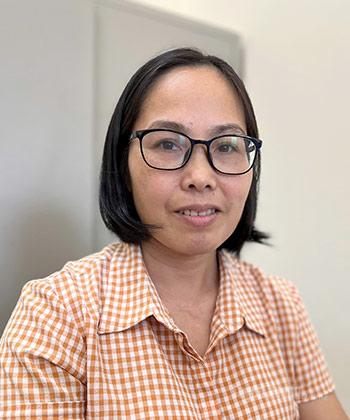 |
Comrade Duong Thi Kim Xuyen
Education Specialist, Nong Tien Ward People's Committee
Looking for management training
Previously, I worked in the education sector. After working at the People's Committee of Nong Tien Ward, I was assigned to be in charge of the ward's education sector, which is quite favorable. However, education is a special field with many areas and contents, requiring a solid knowledge base, practical understanding and the ability to update regularly to be able to advise the commune leaders promptly and accurately, and provide practical support to the schools.
Therefore, in addition to the effort to both learn and work with the highest sense of responsibility, we really need to be trained and improve our professional skills. At the same time, we need to regularly have specific guidance documents so that the team of civil servants in charge of the education sector has a basis to implement plans and tasks. Only then can we ensure unity and continuity in each step of capacity improvement, meeting the increasingly high requirements of educational management at the grassroots level.
 |
Teacher Chau Thi Mien
Principal of Tan Long Secondary School, Tan Long Commune
Strengthening coordination work
This school year is the first year after the commune merger with many changes in education management. As the head, I am well aware that the quality of education cannot come from the school's efforts alone. First of all, the Commune People's Committee needs to pay attention and closely direct the implementation of educational policies and guidelines, especially in the context of the commune's recent merger, with many new aspects in management.
Along with that, the joint mobilization of resources to invest in facilities and teaching equipment is a key condition to help teachers and students effectively implement educational innovation. In addition, the coordination in organizing extracurricular activities, traditional education, and caring for the spiritual life of students is of special importance. When the government, schools and parents truly work together, we will create a comprehensive educational environment, contributing to the formation of a generation of citizens who are both knowledgeable and responsible for their homeland.
Source: https://baotuyenquang.com.vn/xa-hoi/202508/go-kho-sap-xep-cong-chuc-giao-duc-b0831ff/



![[Photo] President Luong Cuong receives President of the Cuban National Assembly Esteban Lazo Hernandez](https://vphoto.vietnam.vn/thumb/1200x675/vietnam/resource/IMAGE/2025/9/30/4d38932911c24f6ea1936252bd5427fa)
![[Photo] The 1st Congress of Phu Tho Provincial Party Committee, term 2025-2030](https://vphoto.vietnam.vn/thumb/1200x675/vietnam/resource/IMAGE/2025/9/30/1507da06216649bba8a1ce6251816820)

![[Photo] General Secretary To Lam, Secretary of the Central Military Commission attends the 12th Party Congress of the Army](https://vphoto.vietnam.vn/thumb/1200x675/vietnam/resource/IMAGE/2025/9/30/9b63aaa37ddb472ead84e3870a8ae825)
![[Photo] Solemn opening of the 12th Military Party Congress for the 2025-2030 term](https://vphoto.vietnam.vn/thumb/1200x675/vietnam/resource/IMAGE/2025/9/30/2cd383b3130d41a1a4b5ace0d5eb989d)

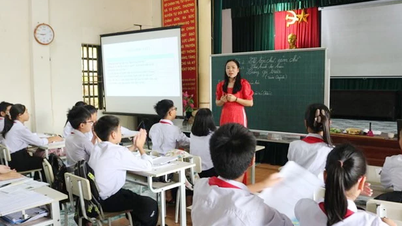

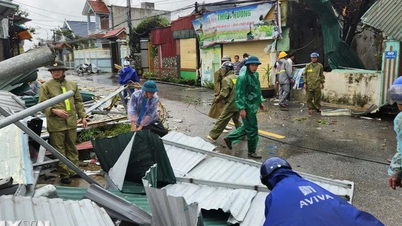

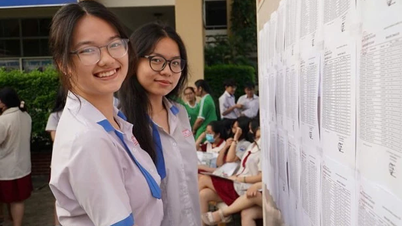


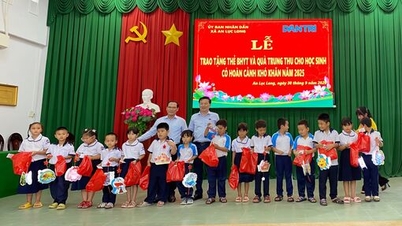

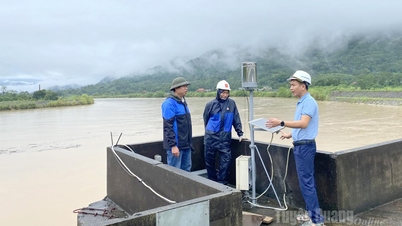
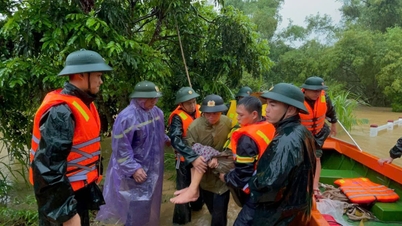










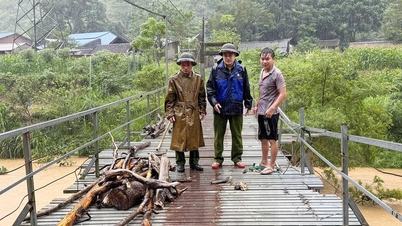
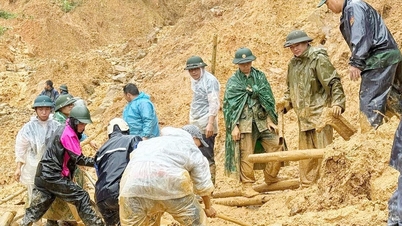

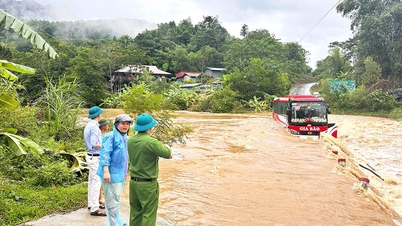
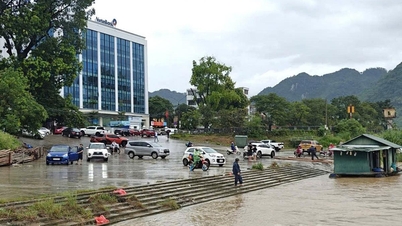
![[Photo] General Secretary To Lam receives US Ambassador to Vietnam Marc Knapper](https://vphoto.vietnam.vn/thumb/1200x675/vietnam/resource/IMAGE/2025/9/29/c8fd0761aa184da7814aee57d87c49b3)












































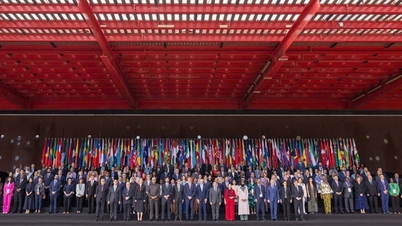


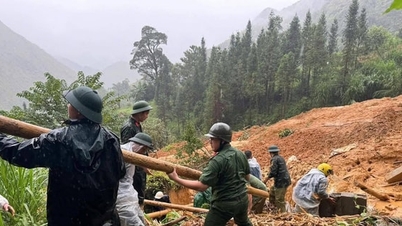



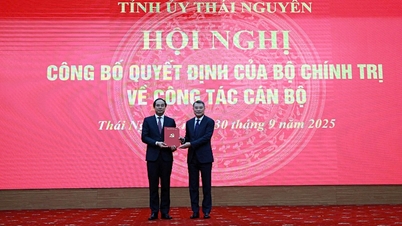

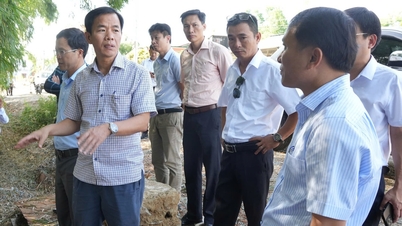













Comment (0)